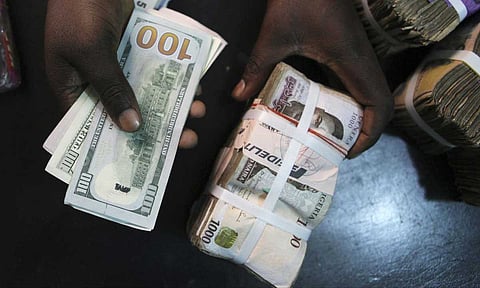

Nigerians have significantly increased their spending on foreign education and health services, reaching $2.3 billion in the first nine months of 2024, despite a more than 30% depreciation of the naira.
This 26% rise in expenditure highlights concerns regarding the local university system and the healthcare infrastructure in Nigeria.
According to an analysis by Financial Vanguard, data from the Central Bank of Nigeria (CBN) indicates that spending on foreign education surged by 26.5% year-on-year, totaling $1.8 billion in the first three quarters of 2024, compared to $1.44 billion during the same period in 2023.
Similarly, expenditures on foreign health services rose by 24.8% to approximately $465.67 million from $366.05 million a year earlier. Overall, this trend marks a continuation of increased spending that began in 2023 following three years of decline from 2020 to 2022.
This increase contradicts expectations that the naira's depreciation—233% between 2023 and 2024—would reduce demand for foreign exchange. Nnamdi Nwizu, Co-Managing Partner at Comercio Partners, explained that the rise in spending may be attributed to panic-driven front-loading of foreign exchange demand as currency values fell sharply.
Educational stakeholders have expressed grave concerns over the implications of such spending. Leaders from organizations like the Academic Staff Union of Universities (ASUU) and the National Parent Teacher Association of Nigeria (NAPTAN) have labeled the over $1.82 billion spent on foreign tuition fees as a national embarrassment, calling for investigations into how these funds were sourced.
ASUU President Prof. Emmanuel Osodeke criticized the situation, noting that many Nigerians are now funding foreign education while local institutions deteriorate due to neglect and lack of investment.
The issue extends beyond education; Dr. Akinola Akinmade from Afe Babalola University highlighted critical gaps in Nigeria’s healthcare system, which drive many to seek medical services abroad.
